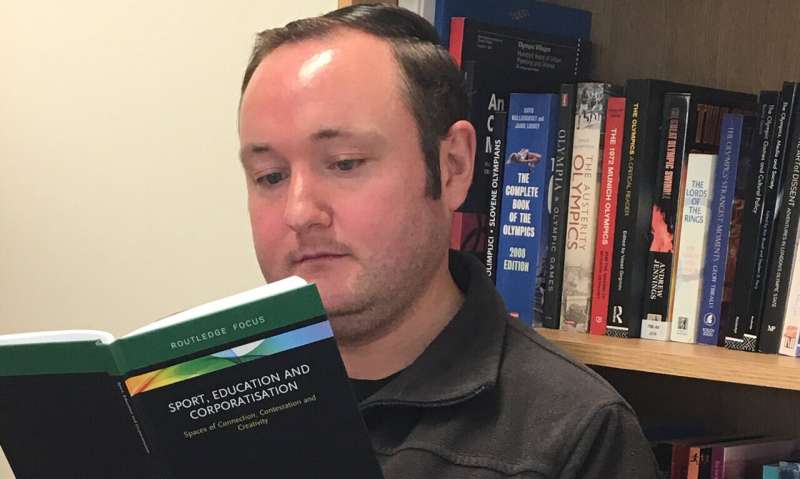Research calls for analysis of corporate ethics in the global sports industry

A new book co-written by a University of Kent sports scientist recommends corporations and organisations engage more effectively with communities—rather than taking a 'top down' approach—to improve relationships and outcomes in the sport sector.
Such outcomes include approaches to the financial resourcing of schools and community groups, shared development of sport-based educational material, and the general promotion of sport and physical activity.
Dr. Geoffery Kohe, Lecturer in Sport Management and Policy in the School of Sport and Exercise Sciences, makes the recommendation after research into strategic alliances forged between sports, education, social development, charity, political and corporate sector stakeholders.
His book, entitled Sport, Education and Corporatisation: Spaces of connectivity, contestation and creativity (Routledge, 2019), looks at global, regional and local places where stakeholder connections are made, sport and physical activity initiatives are produced, and community action and engagement takes place.
The book considers key organisations, including the International Olympic Committee, international and European football associations, the United Nations and its affiliated agencies, companies like Nike, Adidas, Coca Cola and McDonalds as well as philanthropic entities such as the Gates and Aegon Transamerica Foundation.
Dr. Kohe and co-author Dr. Holly Collison, of Loughborough University London, argue that large multinational companies are in a powerful position to shape sports education. However, not enough is known about corporate interventions in sport and sport policy development.
Alliances between commercial entities and sport for educational purposes have become increasingly normalised, and are used frequently to demonstrate a shared commitment to a 'greater good', the researchers argue.
Dr. Kohe, a member of Kent's Sport Legacies and Communities Research Group, said: 'Ultimately, we need more space for critical dialogue and local ownership in these partnerships and improved transparency, accountability and democracy at all levels. Organisations that lead initiatives and control resource provision have moral responsibilities and a duty of care to ensure their presence is not exploitative and agendas do not supplant existing liberties and freedoms.'
Provided by University of Kent


















